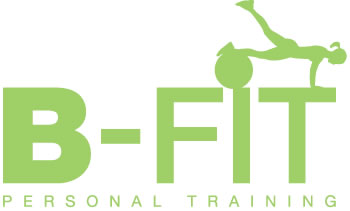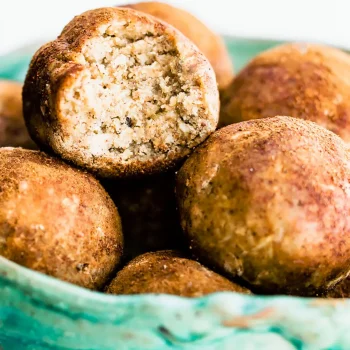It drives me crazy whenever I hear people giving nutrition advice because of things they’ve heard in the media, on TikTok or from someone who is completely ill-informed about how the body actually works. Dealing with my dad’s hospital admission recently, I was shocked at how much the food he was being fed lacked the nutrition he needed to get better. It seems that there are some very common myths about proper nutrition as a whole.
So, here are the top 5 most common nutrition myths I hear, as well as my responses that will hopefully get you thinking (and perhaps learning how to be healthy the B-Fit way!) :
Myth #1: Eating Healthy Is Too Expensive
My response: This is definitely the most common myth I hear about giving your body the nutrition it needs. Yes, if you go to an average supermarket or do a convenience shop at a local food retailer, then purchasing the healthiest options available will definitely cost you more. In addition, if organic produce is mentioned, many people recoil in horror at the thought of forking out a bit more. However, there are easy ways in which to purchase organic vegetables and fruit at a cost that won’t hurt your bank account. And while it may take some additional planning and time in the kitchen, eating healthy and organic on a budget is entirely possible.
For instance, have you been to our local(ish) organic farm shop Manic Organic? Or have you thought about ordering an organic veg/fruit/and/or meat box and getting it delivered to your door from Riverford Organics, which has been around for years, is owned by the staff and has been ranked as one of the Top 100 companies to work in the UK?
You could even make your organic vegetables go even further, which will make them more economical. For example, you can use them to make yummy soups and casseroles that will stretch to many meals, plus they’ll contain an array of beneficial vitamins and nutrients. If you add in some protein, such as pulses like lentils and cheap organic cuts of meat, these will also satisfy you and your family’s hunger pangs this winter. And have you ever thought about growing your own fruit and veg? It can be as easy as planting some low-maintenance apple and/or pear trees, or even raspberry bushes, which all require minimum effort to grow. Or consider just throwing some carrot, beetroot, spinach, radish, green beans, broccoli, squash or kale seeds into a veg patch in your garden. I’m rubbish at tending to my veg patch and definitely don’t have green fingers, but I just chuck in the seeds and see what grows in amongst the weeds and nettles — snd there’s always something ready to harvest that I can use to make dinner with!
You’ll have to think outside of the box (pun intended) in order to eat more healthily, but it can be done. And then you can also avoid the dreaded supermarket queues at the weekend, which will reduce your stress levels — an added bonus!
Myth #2: All Fat Is Bad
My response: This one drives me mad, because it’s simply not true. There are healthy fats and unhealthy fats, and when eaten in moderation, the latter offer great benefits. The current recommendations of following a low-fat diet are the result of research by Ansel Keys in the 1970s, known as the Seven Countries Study, which showed that saturated fats have adverse effects on health, while unsaturated fats have beneficial effects.
The research led to most western nations overemphasising the benefits of eating a low-fat diet and food companies followed suit, creating products that instead contain lots of sugar in many forms. Keys’ research has since been debunked on account that it was found he had cherry picked the data to support his conclusions and it is not clear who specifically provided the funding for the study. Many people argue that the sugar industry provided the funding. The controversy is discussed in detail in the book Pure, White, and Deadly: How Sugar Is Killing Us and What We Can Do to Stop It by John Yudkin and Robert H. Lustig, which is a really great read!
Myth #3: You Have To Count Calories
My response: This is definitely not true. While counting calories may be an effective tool to help you gauge how much food you’re consuming, this will only work for food products, not real and nutritious whole foods that have been cooked from scratch. Of course, the weight loss industry wants you to believe otherwise, because that’s how they make their money — through getting you obsessed about counting calories and selling you their food products, which are full of dubious ingredients for starters.
None of which will help you to develop a healthy relationship with real whole food. In addition, the quality of the food you eat is much more important than the number of calories you eat. For example, a calorie from a nutrient-dense food like broccoli is not the same as a calorie from a sugary biscuit. Counting calories will only lead to an unhealthy relationship with food, where meals become a tedious exercise of tallying and food weighing, which is stressful and can contribute to disordered eating habits.
Myth #4: Smoothies Are Good For You
My response: Yes and no. Unfortunately, when most people think of smoothies, they’re focussing on the kind you can buy in the supermarket, which tend to be very high in sugar, especially if they contain a lot of fruit like bananas, pineapple or mango, or have sweeteners added (you’d be surprised if you read the labels!). This means that drinking a daily smoothie or two can easily lead to blood sugar spikes, which contributes to weight gain around your tummy and other health issues.
In addition, smoothies that you buy in the supermarket can be contaminated with harmful chemicals like PFAS and pesticides, which have been found in some commercial brands. These chemicals can be harmful to your health and accumulate in the body over time. So, although smoothies can be a convenient way to increase your fruit and vegetable consumption, and provide you with important nutrients, it’s important to make them yourself, so that you can choose the ingredients carefully (organic is best, especially if adding things like apples, spinach or celery) and avoid the addition of sugar.
Myth #5: Carbs Make You Fat
My response: Carbs don’t necessarily make you fat. This is a common nutrition myth that has been debunked by experts, including Dr. Mercola, who emphasises that consuming healthy carbs should be part of a well balanced diet. Of course, eating too many carbs, regardless of the source, will lead to weight gain. However, carbohydrates are an important source of energy for the body and should never be avoided entirely. The type of carbohydrate you eat matters.
Simple or highly processed and refined carbohydrates, such as white bread, pasta, cereals, chips, bagels, crisps and sugary drinks, will spike your insulin levels up and interfere with your weight loss. However, because complex carbohydrates, such as whole grains and vegetables, take longer to digest, they provide your body with sustained energy without raising your blood sugar levels. Therefore, it’s vitally important to consume carbohydrates in moderation and choose the most healthy sources to maintain a healthy weight and overall health. The most healthy sources of carbohydrates include fresh, organic vegetables, which can also improve your health by providing important nutrients your body needs to function properly.
I hope that you are now have a deeper learning about how these top 5 nutrition myths are just that — myths. I’d love to hear what you think. Leave me a comment by CLICKING HERE to keep the conversation going!
Love, Gaynor x





